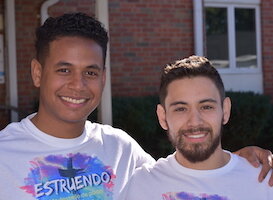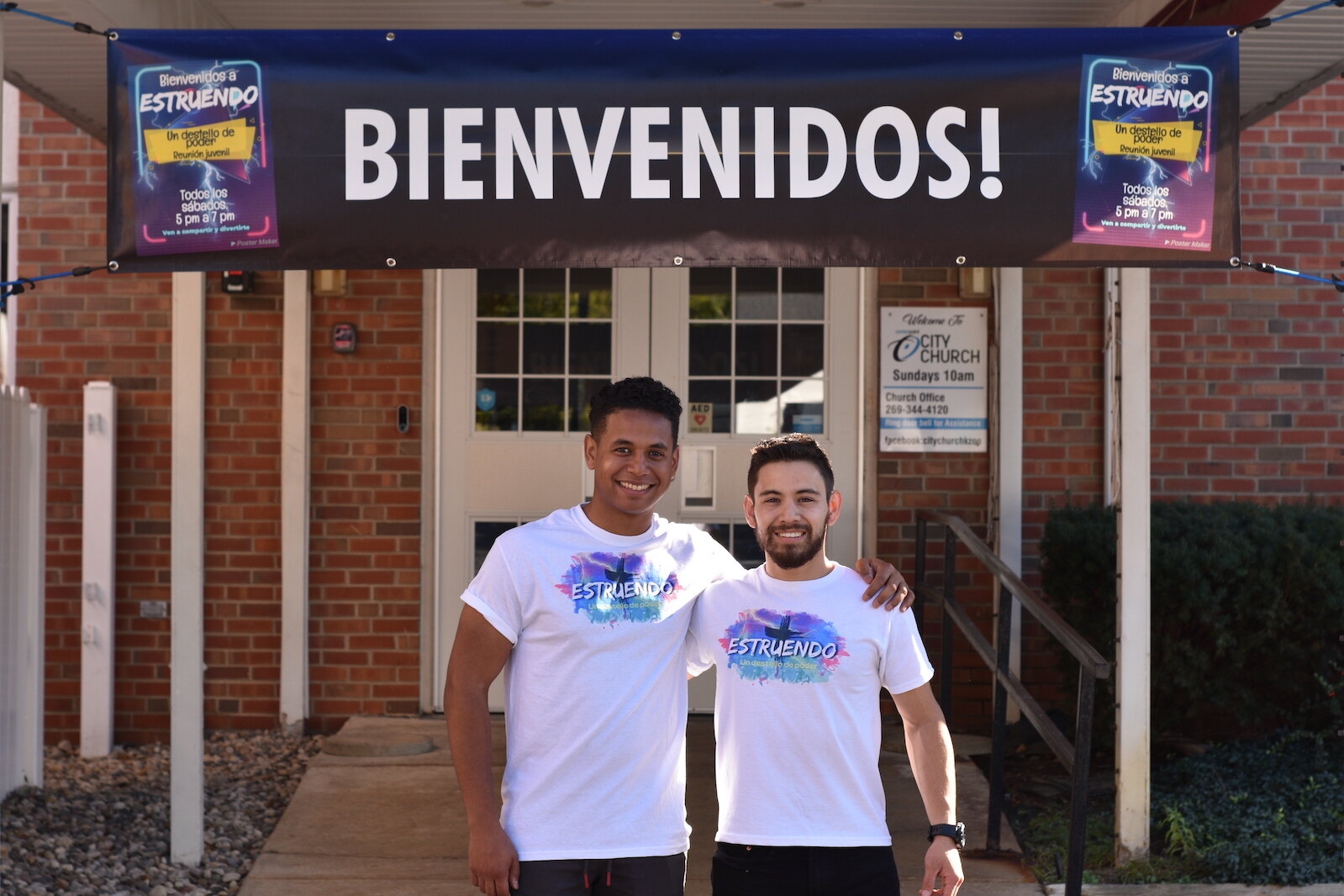This story is part of the Mental Wellness Project and it originally appeared in Nueva Opinion on Oct. 13.
When Jeffrey Tavarez and Agustin Leal-Diaz heard yet another story of suicide among college youth, they knew they had to do something to help — and they had to do it loudly, with the sound of thunder.
The two recent graduates of Western Michigan University also wanted an effort specifically targeted for Spanish-speaking young adults, like themselves.
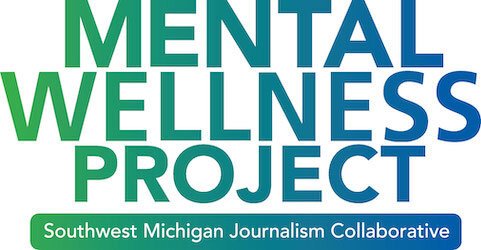
“We got together, including my friend, Wilson Casallas, and the three of us decided to form a group to help students and other young people who may be thinking about suicide,” Tavarez says. “We went through all kinds of names for the group, but finally settled on Estruendo. That’s Spanish for thunder.”
“We decided on that name because it means making a big impact,” Leal-Diaz adds. “And that’s what we want to do — make a big impact with a loud noise.”
There were other reasons the young men decided to start the group. They, too, had experienced the sense of despair and isolation that can lead to suicidal ideation.
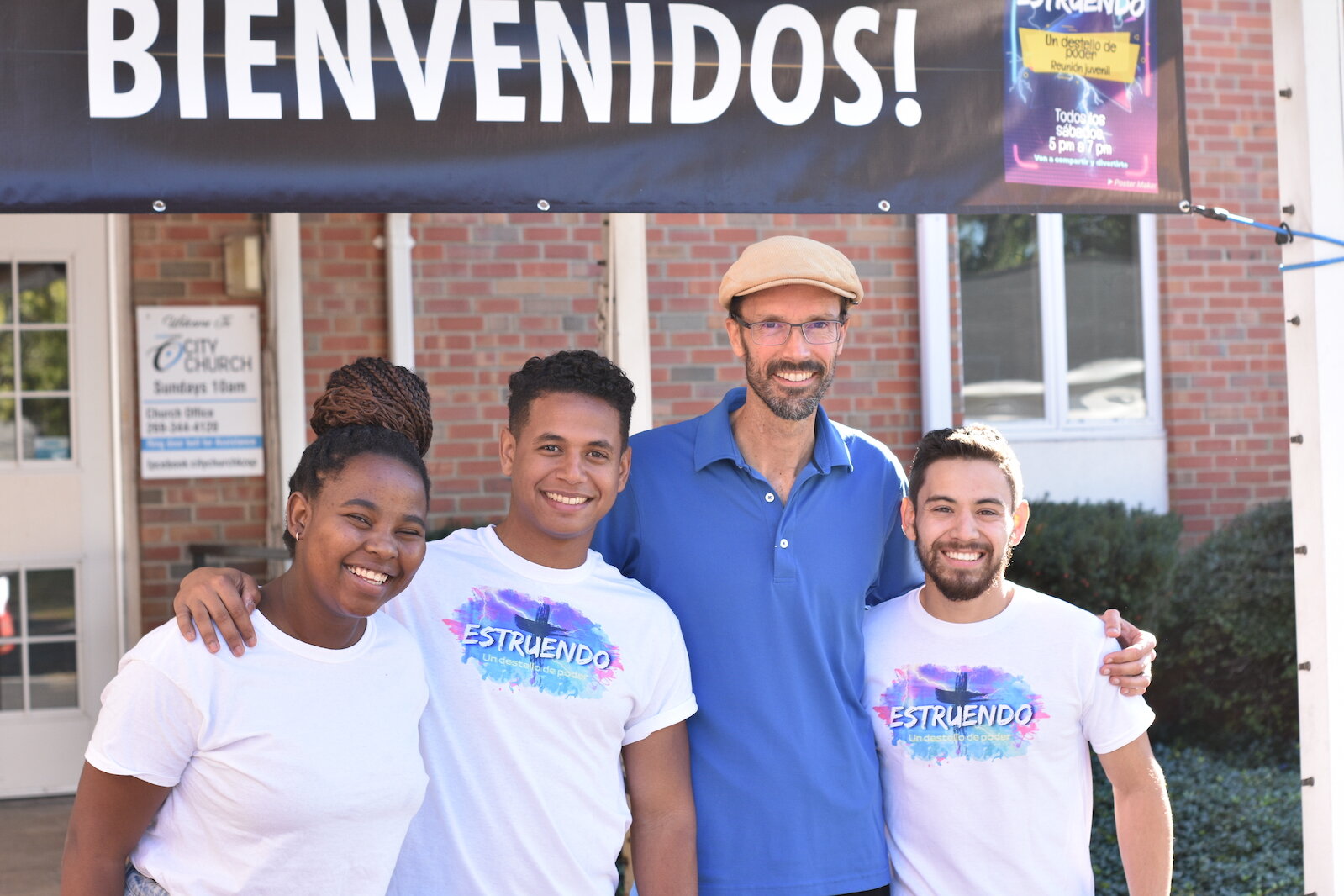
“I immigrated to the States from the Dominican Republic in 2018,” Tavarez says. “I was a student back then and I’m now on a work permit, working as a mechanical designer. I graduated in 2020 from Western with a degree in aerospace engineering. I came here with eight other students, so that helped give me a sense of family when I had to leave mine behind, but I can remember the isolation I felt. I want Estruendo to be that kind of family for others like me.”
Not only was there a language barrier, but Tavarez had to overcome a cultural shock as well. Everyday life, traditions, everything around him was new and different. He felt like an outsider.
It was a feeling with which Leal-Diaz was familiar. He majored in geography and economics at Western Michigan University and works today as an HVAC technician.
“I struggled with depression during my college years,” Leal-Diaz says. “There were a couple of months that, yes, I thought about suicide. There was always some encounter when I got to that point that pulled me back, and there were three occasions when I helped others who were on that edge. I would like to do that for others with Estruendo.”
The only requirements for the newly formed group are that participants are Spanish-speaking and are roughly in the age group of 18 to 25. The group meets every Saturday from 5 p.m. to 7 p.m. at Centerpoint City Church, 326 W. Cork St. in Kalamazoo.
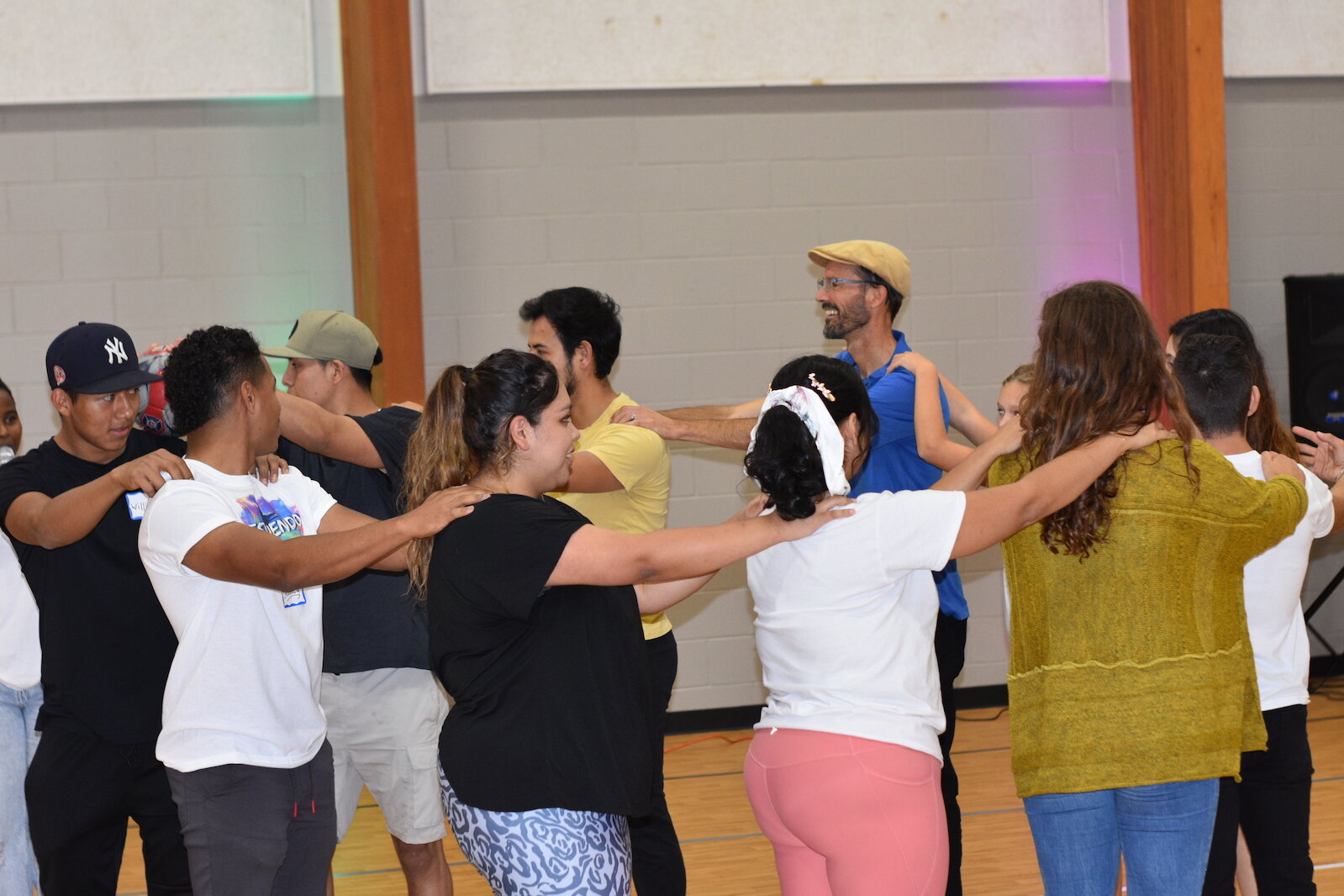
According to the Centers for Disease Control and Prevention, Michigan ranks 14th in the country for suicide rates, with an average of 1,444 deaths by suicide per year.
Nationwide, one person dies by suicide every 11 minutes. In 2020, 12.2 million people reported thinking about suicide; 1.2 million attempted suicide, and 45,979 died. In 2020, 4,571 suicide deaths involved people of Hispanic ethnicity.
While people aged 85 or older have the highest rates of suicide, rates among youth have been rising steadily, with suicide now the second-highest cause of death among those aged 15 to 24, primarily male. More than 10% of college students reported that they seriously considered suicide in the past 12 months.
The U.S. Department of Health and Human Services reports that suicide is the second-leading cause of death for Hispanics, ages 15 to 34. In 2019, suicide attempts for Hispanic high school girls were 30% higher than for non-Hispanic white girls in the same age group. A contributing cause may be that Hispanics were 50% less likely to have received mental health treatment as compared to non-Hispanic whites.
Because the prefrontal cortex — the brain’s executive control center — doesn’t fully develop until one’s mid-20s, young people are more prone to depression, anxiety, and even suicidal ideation than adults. Self-esteem can be an especially vulnerable factor for the young, and a lack of meaningful social connection, exacerbated by the COVID-19 pandemic, can contribute to a higher risk for suicide in this age group.
“We really started to notice how isolated people were feeling during the pandemic,” Tavarez says. “The pandemic made it worse for everyone. In April 2022, we began talking about how we could help, and we kicked Estruendo off in June. We made fliers and posters and distributed them all around town; we went to Latino festivals and had a booth at the Bronco Bash at Western. We are trying to connect however we can to let people know we are here for them.”
Gatherings at the Centerpoint City Church begin with an icebreaker activity and introductions to get people talking to each other.
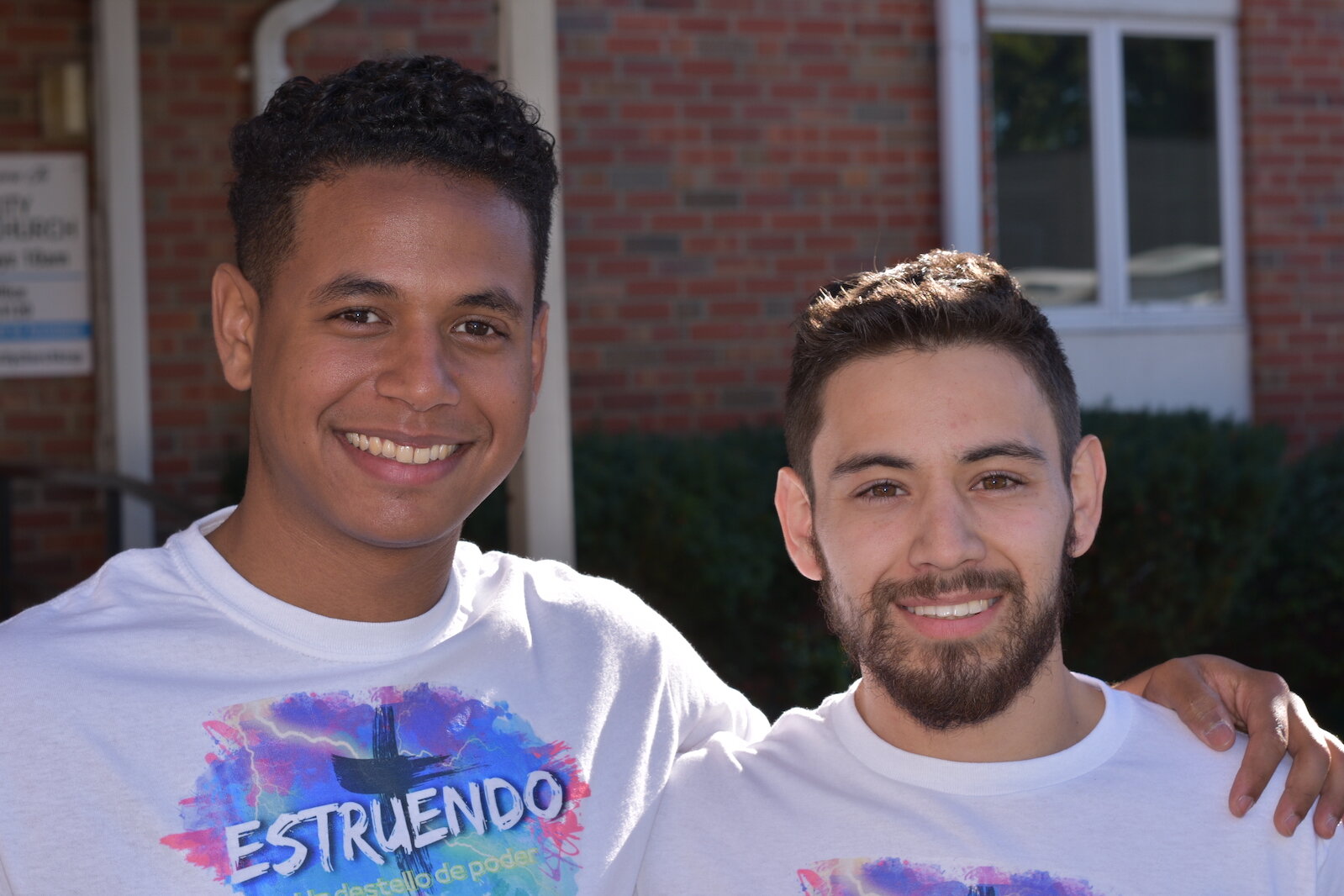
“We might just play games for an hour, have some challenges and competitions, have fun while building connections,” Tavarez says. “It’s about giving people a sense of belonging. We also spend a few minutes reading a Bible passage together to replace that feeling of isolation with one of faith and hope.”
“How many people show up varies,” Leal-Diaz adds. “Sometimes it is just a few, but recently we had 27 people show up, our most so far. Our hope is to get people out of their routine, give them someone to talk to, offer them some peer support.”
To join Estruendo, Tavarez, and Leal-Diaz say, you don’t have to be of Hispanic ethnicity, but you do have to speak Spanish.
“Being able to speak your native language at our gatherings makes a big difference,” Tavarez says. “It makes people more comfortable.”
Peer support can be an effective intervention for people experiencing depression, according to a 2011 meta-analysis published in General Hospital Psychiatry, while a 2013 report in the Journal of Affective Disorders found that increasing social supports can decrease the risk of suicide.
But such interventions are not a silver bullet. While support groups such as Estruendo can help with feelings of depression, isolation, and suicidal ideation, some people will need more intensive help from mental-health professionals, such as counseling and/or medication. That’s why Estruendo’s founders are reaching out to other organizations.
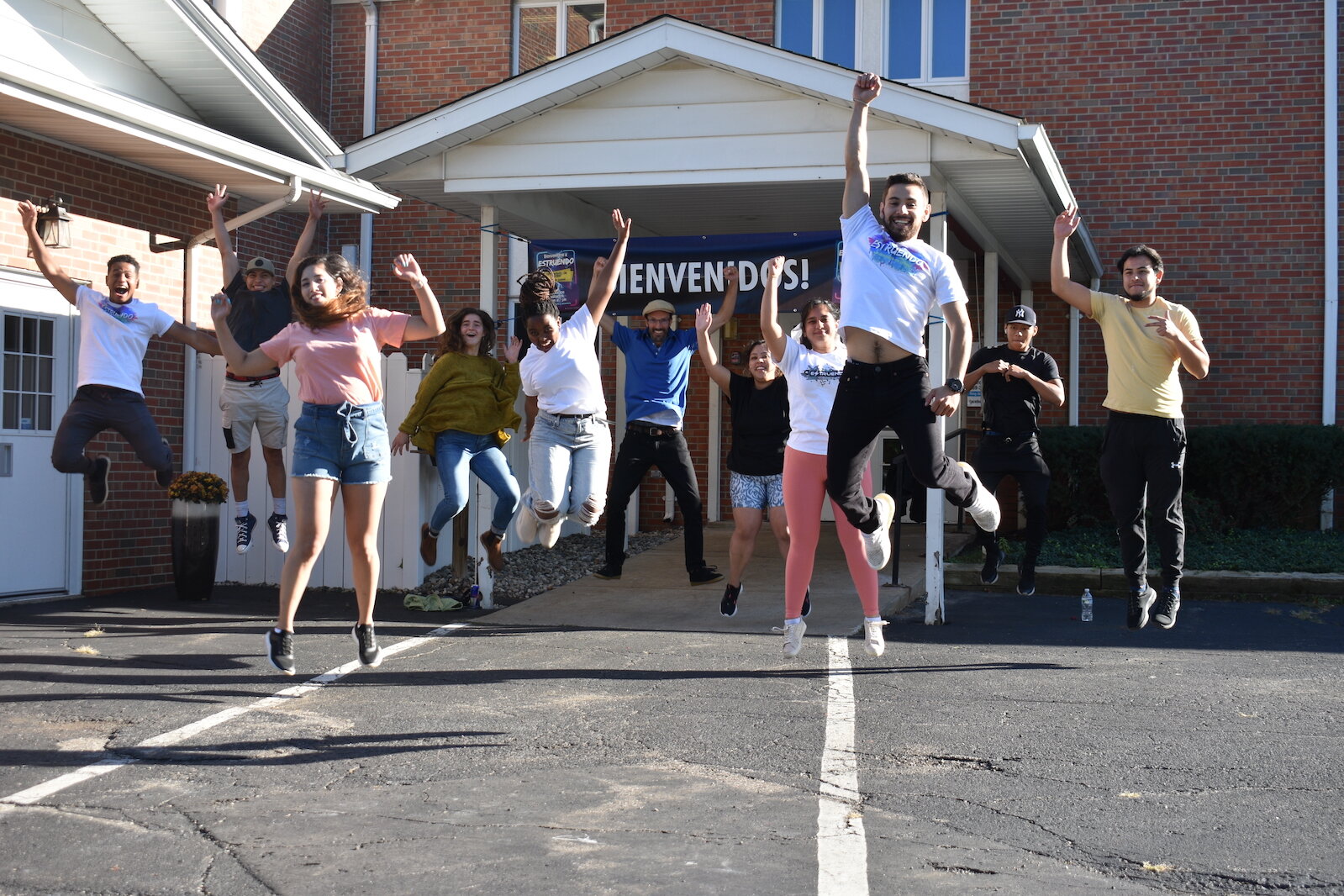
“We are currently looking for connections that Estruendo can make with those who are treating suicide attempts, like Gryphon Place so that we can get more training as we further develop our mission,” says Leal-Diaz.
Although Estruendo has a focus on participants of Hispanic background, anyone is welcome to join.
“We are also reaching out to foreign exchange students at our colleges and high schools,” Leal-Diaz says. “We have had a couple of Japanese exchange students attend, also from Ecuador and the Dominican Republic, and one of our members is from Latvia. If they speak Spanish, they can come to our meetings, no matter where they are from.”
Leal-Diaz says he is now past that dark place in his own life, back in his college days, but memories of that time spur him on to help others.
“There were moments when I felt so alone,” he says. “Even in a crowd. Even among family. I would push people away, but my friends stayed there for me and that helped to save me. I have since learned to cope, but now my motivation with Estruendo is to be there for others.”
“Estruendo is here to close the gap so that no one feels isolated,” Tavarez says. “Just show up. It’s free to join us.”
To learn more about Estruendo or to contact Jeffrey Tavarez, call (269) 626-3187.
How to help someone with thoughts of suicide
Recognizing who is at risk for suicide is the first step to help.
Most people experiencing suicidal thoughts want to live but are unable to see alternatives to their problems. They may give warnings of their intentions, talk often about death, start giving away possessions, or isolate themselves from friends and family. Hygiene may deteriorate and academic performance suffer. They may exhibit rapid mood swings, experts say.
High-risk individuals may have recently experienced stressful events in their lives — and college students leaving home and family can fall into that category. Other examples may include someone suffering from depression or other mental illnesses. They may be self-medicating with a substance-abuse disorder.
Psychiatrists have determined that talking to someone about suicide does not cause them to become suicidal. In fact, being direct — and using the word suicide — is recommended. Frank conversation opens the door to discuss feelings. Most suicide attempts are expressions of extreme distress, not harmless bids for attention.
Governors State University in Chicago’s Southland has put together a list of recommendations on how to help someone who is expressing suicidal ideation:
- Show interest and be supportive.
- Be direct; ask them if they are considering suicide or have a plan.
- Don’t be judgmental, give advice, or try to talk them out of suicide.
- Don’t swear to secrecy.
- Offer hope that alternatives are available.
- Don’t leave the person alone.
- Take action, remove means, and assist them in getting the help they need.
- Inform Residence Life and Housing staff if you live in a residence hall.
- Consult with a counselor as needed.
Studies show that intervention can be successful in preventing suicide. Medications and therapy to treat depression and anxiety can be effective in treating the symptoms that may lead to suicide attempts.
In the greater Kalamazoo area, Gryphon Place maintains a 24-hour crisis hotline at 269.381.HELP. Another local asset is a telephone line called Warmline in Kalamazoo, offering a listening and compassionate ear to those who just need to talk. Warmline can be reached at 269.488.7735.
Resources for Suicide Prevention
- American Association of Suicidology — www.suicidology.org
The goal of (AAS) is to understand and prevent suicide.
- American Foundation for Suicide Prevention — www.afsp.org
The nation’s leading organization brings together people across communities and backgrounds to understand and prevent suicide, and to help heal the pain it causes.
- IMAlive – https://www.imalive.org/
An Online Crisis Network. The first online network with 100% of its volunteers trained and certified in crisis intervention.
- National Suicide Prevention Lifeline — www.suicidepreventionlifeline.org
No matter what problems you are dealing with, we want to help you find a reason to keep living. By calling 1-800-273-TALK (8255) you’ll be connected to a skilled, trained counselor at a crisis center in your area, anytime 24/7.
- Online Resource for College Mental Health — www.ulifeline.org/
Provides suicide and depression resources for college students.
- Suicide Prevention Resource Center — www.sprc.org
The nation’s only federally supported resource center devoted to advancing the National Strategy for Suicide Prevention.
- The Jed Foundation — http://www.jedfoundation.org/
As the nation’s leading organization working to promote emotional health and prevent suicide among college students, The Jed Foundation is protecting the mental health of students across the country.
- ULifeline — http://www.ulifeline.org/
On online resource for college mental health. Also includes a helpline for those with more serious mental health issues such as suicidal thoughts and how to help a friend.
This story is part of the Mental Wellness Project, a solutions-oriented journalism initiative covering mental health issues in southwest Michigan, created by the Southwest Michigan Journalism Collaborative. SWMJC is a group of 12 regional organizations dedicated to strengthening local journalism. Visit swmichjournalism.com to learn more.

